How Cloud-Based Services for Business Transform Products & Services
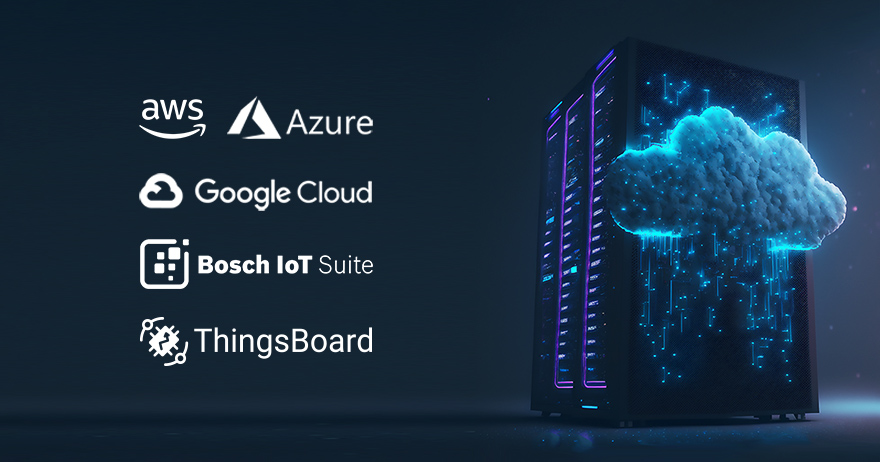
Сhoosing the best platform for your cloud-based solution is not easy for many companies, as we know from our experience working with clients. In this article, we will go through various types of cloud computing services, our case studies, and compare the most popular platforms:ThingsBoard, AWS, Google Cloud, Bosch IoT Suite, and MS Azure.
According to a McKinsey study, by 2025, large enterprises will move up to 60% of their environment to cloud platforms: storage, servers, tools, and databases. The growing popularity of the platforms is evidenced by the market size, which has grown 4.7 times in the past two years to reach $480 billion in 2022. In 2027, the value of the cloud platform market could exceed $1,200 billion.
Amazon, Microsoft and Google lead the market:
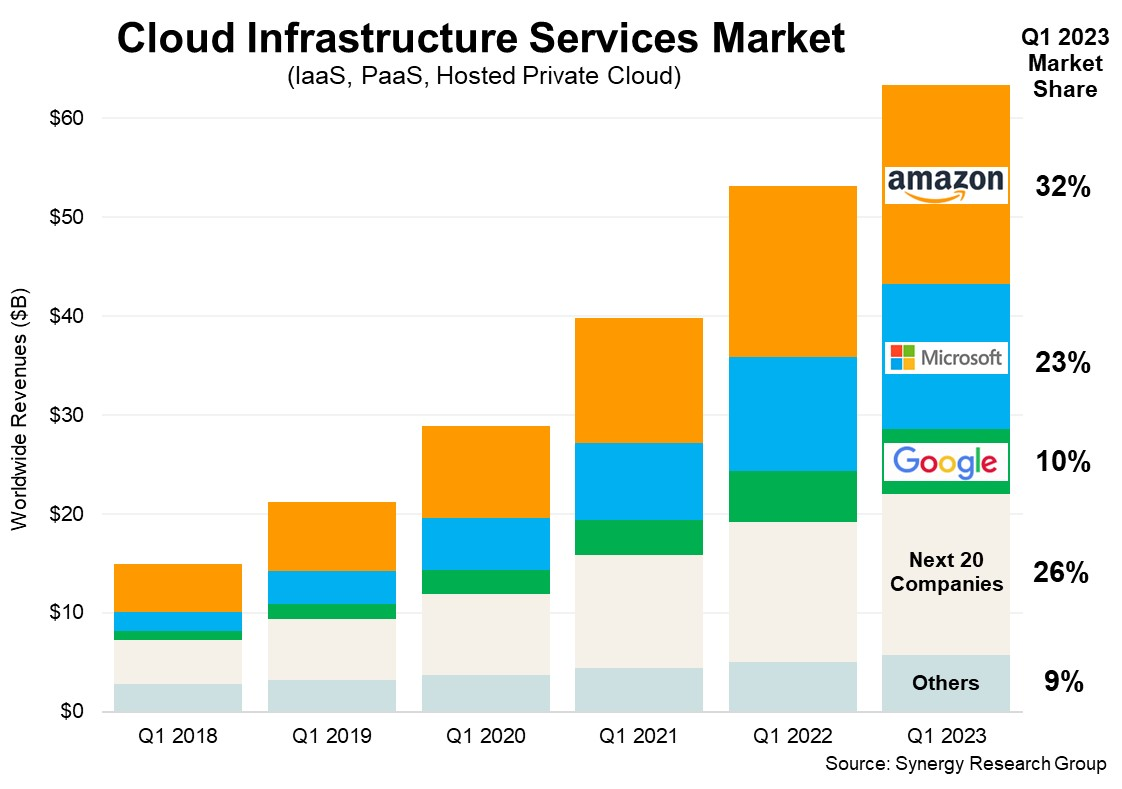
Cloud platform market. Amazon, Microsoft, and Google take 65%. Source: srgresearch.com
Cloud-based services provide greater flexibility, security, innovation, and faster time to market. Cloud infrastructure saves company resources.
Types of Cloud Services: Business Models, Deployment Options, and Industries
Platforms are usually classified into two categories: by service and deployment models. Understanding the characteristics of each platform type will help you choose the best option for your project.
Here are the most common types of cloud-based services by business model:
- Software as a service (SaaS) provides software applications over the Internet as a service. The provider hosts and maintains the application infrastructure and handles updates and security.
- Platform as a service (PaaS) offers a turnkey environment with tools and libraries for application development, testing and deployment.
- Infrastructure as a service (IaaS) gives users access to virtual computing resources. It's a virtual data centre lease instead of buying and managing physical servers and other networking equipment.
- Function as a service (FaaS) allows you to work on a platform that implements application logic on request. Developers write and upload their code, and the cloud provider executes and scales the code in response to specific triggers.
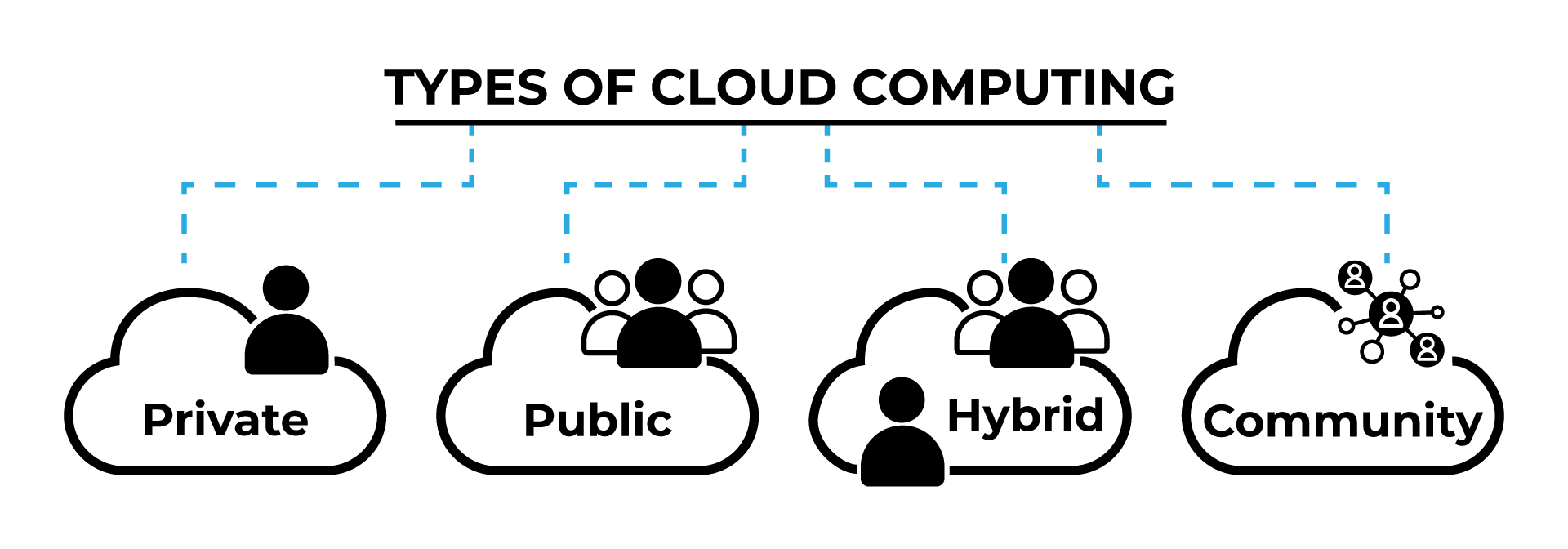
And here is the classification of clouds by deployment model:
- Private clouds address the tasks of a particular organisation, and only its employees have access to it. Companies either do cloud platform development themselves and maintain all computing resources or buy a ready-made solution from a vendor. Private clouds provide a higher level of privacy and security than shared clouds.
- Public clouds are owned by the service provider. This model is often implemented through infrastructure as a service (IaaS) when the user rents servers, network equipment, and storage resources.
- Hybrid clouds combine a company's local infrastructure with the resources and services of public cloud providers. Companies use the private cloud to store confidential data in this model, while the public cloud solves less critical processing tasks.
- Community clouds are an infrastructure used by several organisations in the same community, such as government or medical institutions. The resources and services in this infrastructure are based on a common regulatory framework.
Another criterion to look at when choosing a cloud platform is the software distribution model, such as on-cloud or on-premises:
- On-cloud. An option with the infrastructure residing on the servers of the service providers, who manage this hardware and are responsible for technical support.
- On-premises. An option with networking equipment hosted on the client's site with their control of hardware, data, and security. The best solution for enterprises with strict regulatory requirements and mission-critical applications.
What industries use cloud solutions? About a quarter of users are in the BFSI segment (banking, financial services and insurance), followed by IT and telecom, retail and consumer goods, media and entertainment, manufacturing, energy and utilities, healthcare, government and public sector.
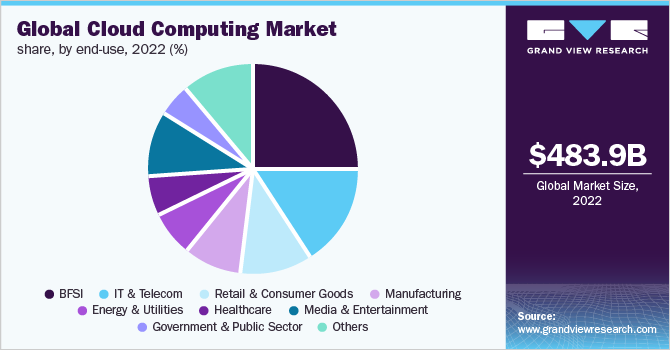
Global cloud computing market shares by end-use in 2022. Source: grandviewresearch.com
Below we show implementations of the most popular cloud platforms, which Promwad engineers used for customers in different industries.
Сase Studies: Cloud-Based Solutions Examples for Various Industries

ThingsBoard
We'll start our review with the ThingsBoard IoT platform, the GitHub leader in the "open-source IoT platform" category. It can be used to deploy cloud and on-premises data collection and analysis solutions.
At the core of the ThingsBoard platform is the Netty Framework, which supports most protocols and applications such as MQTT, CoAP, and HTTP.
Case Study: The System for Monitoring and Analysing Electricity Consumption
Currently, Promwad engineers are working on a system prototype for monitoring and analysing power consumption in server rooms based on the ThingsBoard platform. Below is our example of a server room map with our control posts to monitor the current and voltage values. This data will allow us to detect voltage spikes and take appropriate measures.
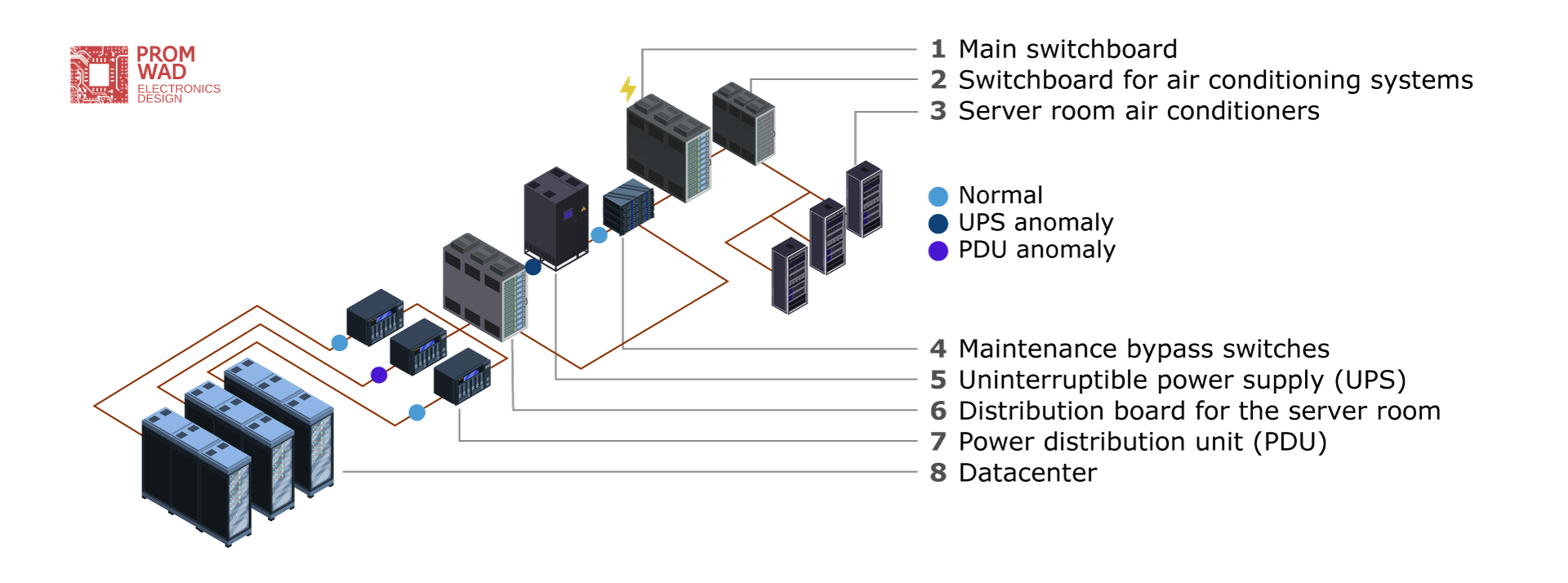
We are deploying this project as part of a comparison with the AWS platform. After implementing it, on the ThingsBoard platform, we plan to deploy a similar prototype on Amazon's AWS cloud to compare implementation costs, pros and cons.

Amazon Web Services (AWS)
Amazon's AWS platform held 32% of the market in Q1 2023. It allows for deploying all services and operates on an infrastructure as a service (IaaS) model, providing users with scalable storage, networking, servers and cybersecurity solutions.

Google Cloud Platform (GCP)
Google offers its suite of cloud-based services (SaaS, AI tools, business analytics and processes) integrated with other corporate services and products from different vendors. At the end of 1Q 2023, this GCP covers 10% of the market of cloud platforms.
Case Study: Embedded Access Control System with Facial Recognition
We developed a hardware and software system for access control for a European carshare company comprising smart cameras, cloud service and a mobile application. We chose GCP to develop a web service for this project to administer multiple fleets, client devices and users.
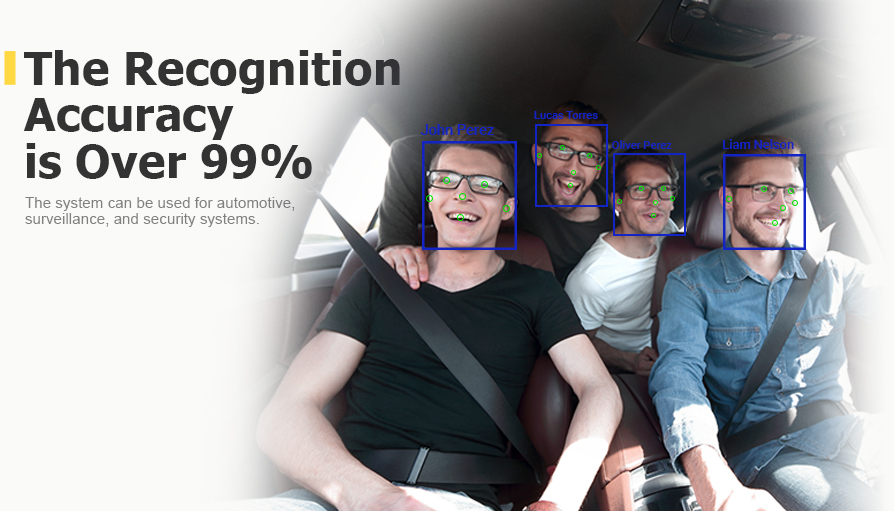
We have developed cloud-based automotive software to enable the following features for our client:
- administer the company profile, its customers and equipment;
- register new clients via mobile application or browser;
- store and manage a secure database of customers' faces (the photos are collected in mathematical rather than graphical representations);
- use face recognition software for access control;
- keep track of time, collect other metrics and build analysis based on them; perform OTA updates;
- deploy ADAS and driver monitoring systems.
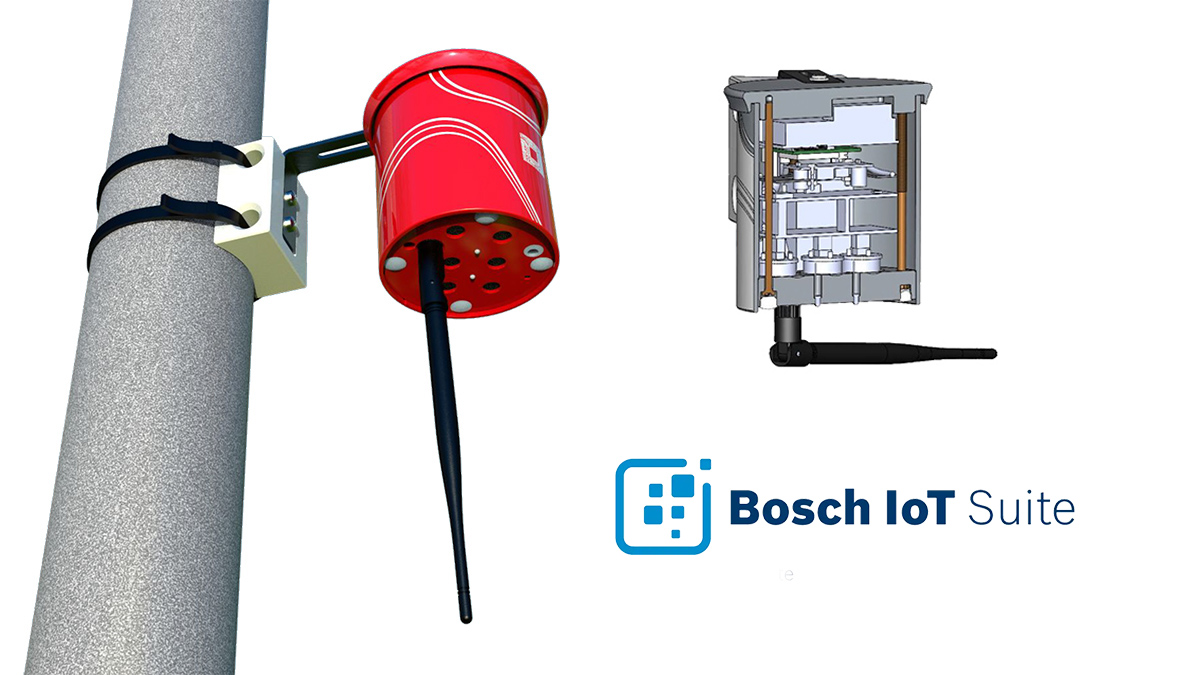
Bosch IoT Suite
This platform provides services and tools for IoT development projects. Users can manage and maintain devices, deploy updates, and collect and analyse data through the platform. The platform supports software as a service and the integration of existing applications.
Case Study: Air Quality Monitoring System for Clean & Smart Cities with Bosch IoT Suite
The Promwad team developed an air quality monitoring solution that collects real-time data and maps pollution.
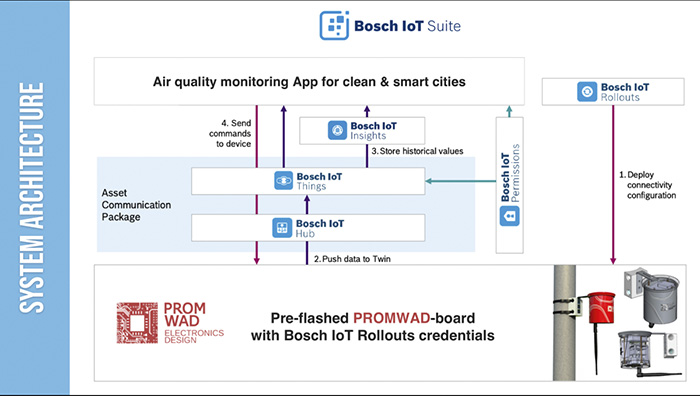
The devices are integrated with the cloud platform and record the required data: CO, NO2, SO2, O3 concentrations, temperature, humidity, etc. Further processing occurs in the cloud: processing, analysis and visualisation.

MS Azure
Microsoft Azure is one of the market leaders among cloud platforms, with a 23% share in 1Q 2023. This platform offers cloud services, including compute power, storage, databases, analytics and artificial intelligence tools.
Case Study: IoT Waste Management System
We had an exciting experience with a tech company that develops software and hardware solutions for the environmental and recycling industries. At their request, we developed a module that manages a set of boards on garbage trucks and automates waste storage and disposal.
Our hardware and software for the IoT waste management system allowed the customer to optimise logistics and automate collecting municipal waste. The next step in developing this project was the connection of the MS Azure cloud platform.
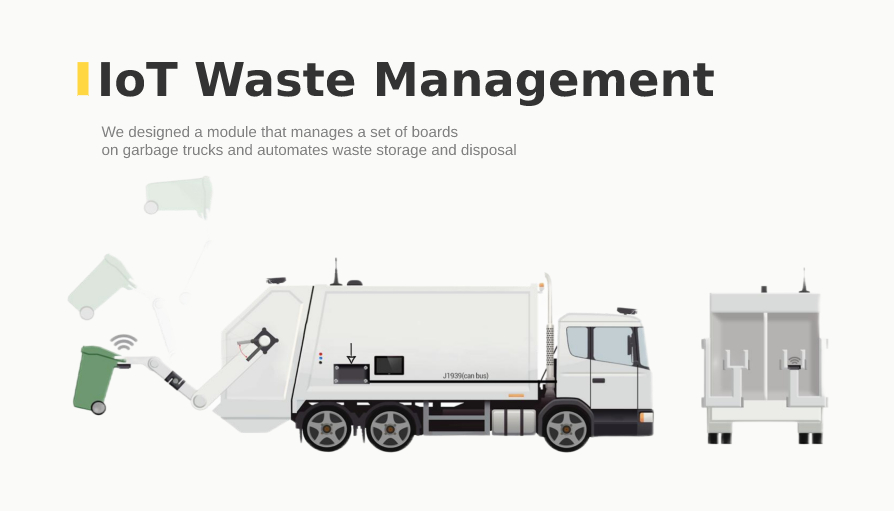
Bottom line
Cloud Platform | Scala− | Compatibility / protocols | Compliance | Integration | Databases | Cloud or on-permises | Cost |
AWS | ✓ |
|
| Extensive integration |
| Cloud only | |
Microsoft Azure | ✓ |
|
| Extensive integration |
| Cloud only | |
Google Cloud | ✓ |
|
| Extensive integration |
| Cloud only | |
ThingsBoard | ✓ |
| Lack of compliance certificates for cloud solution | Azure Event Hub AWS IoT IBM Watson | Cassandra | On-premises and cloud | |
Bosch IoT Suite | ✓ |
|
| On request |
| Cloud only |
Cloud platforms create the infrastructure for innovation in companies that want to stay ahead of the competition. They can be used to develop applications, maintain corporate infrastructure, store and process huge amounts of data . When choosing a platform, you should be guided by your business needs. At Promwad, we advise our customers and help them choose the right cloud platform and deployment model. Also, we can migrate the entire infrastructure to the cloud, integrate existing enterprise solutions with cloud solutions and develop cloud software from scratch.
Contact us if you want to deploy your solution on a cloud platform or explore our service profile:





